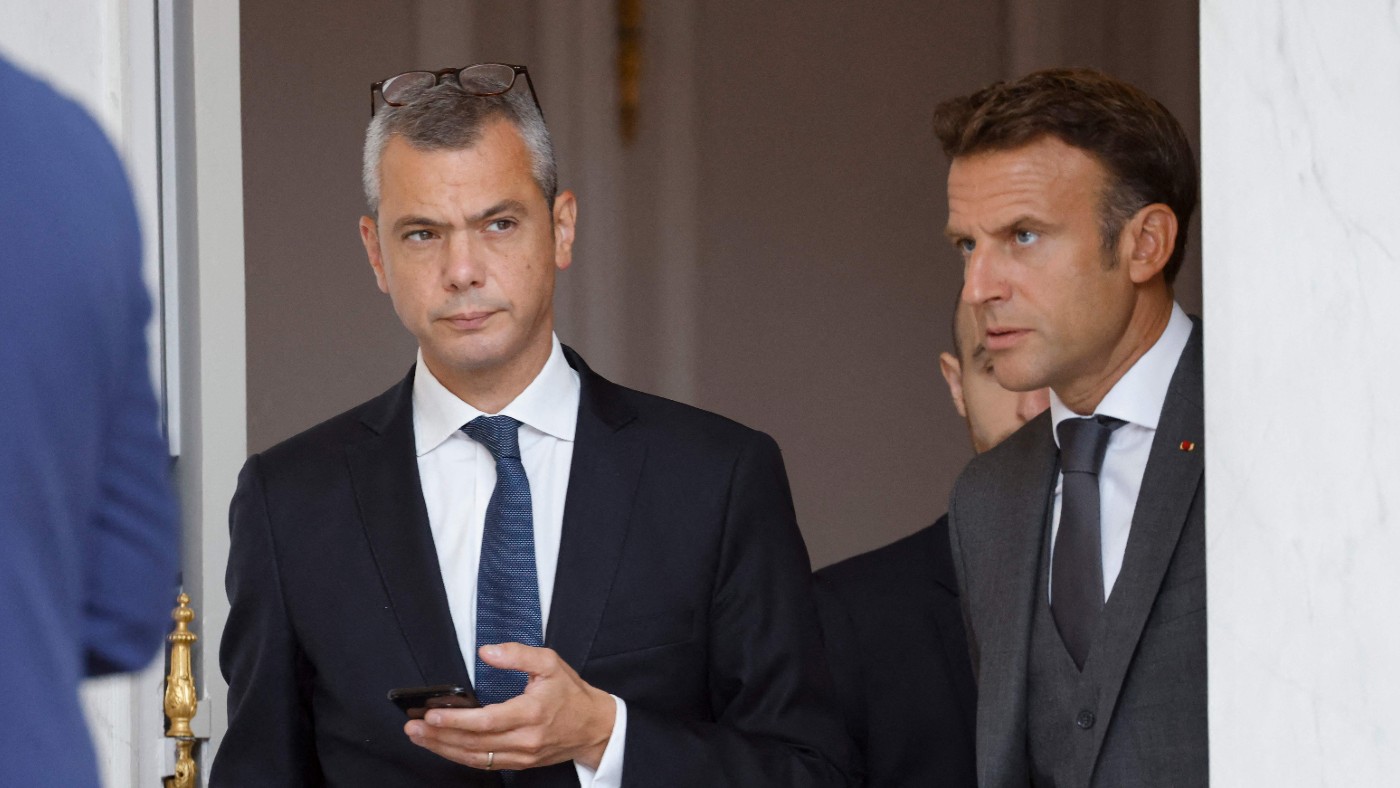Macron faced with corruption charges over McKinsey contracts
Five years after he pledged to clean up French politics, Macron’s government remains plagued by scandal

A free daily email with the biggest news stories of the day – and the best features from TheWeek.com
You are now subscribed
Your newsletter sign-up was successful
When Emmanuel Macron rose to power in 2017 to become the youngest president in French history, he pledged to clean up his nation’s politics, said Ivanne Trippenbach in Le Monde (Paris). Yet five years on, his government is plagued by scandal.
“Twelve ministers have resigned since 2017 for ethical or legal problems” – the latest being Caroline Cayeux, who quit as local government minister last week, after a watchdog accused her of under-reporting her wealth in official declarations. Meanwhile, Macron’s top aide, Alexis Kohler, is facing a judicial probe for an alleged conflict of interest arising from his links to a Swiss-Italian shipping firm.
McKinsey probe
But by far the biggest headache the French president is now suffering was last month’s decision by anti-corruption prosecutors to open a criminal investigation into claims that the US consultancy firm McKinsey won government contracts because it had helped him with his 2017 and 2022 election campaigns.
The Week
Escape your echo chamber. Get the facts behind the news, plus analysis from multiple perspectives.

Sign up for The Week's Free Newsletters
From our morning news briefing to a weekly Good News Newsletter, get the best of The Week delivered directly to your inbox.
From our morning news briefing to a weekly Good News Newsletter, get the best of The Week delivered directly to your inbox.
Macron denies wrongdoing; but there’s no denying he’s close to McKinsey, said Annika Joeres in Die Zeit (Hamburg). Leaked emails have shown that about 20 of the firm’s employees “helped write Macron’s political programme” ahead of the 2017 election, and at least two former McKinsey staff gained influential positions in his government.
Is it just coincidence that state spending on consultancy firms has doubled on his watch? As a senate inquiry found this year, it hit an astonishing €1bn last year. But don’t forget, the EU has previously identified France as a “particularly corrupt country”, with the state losing an projected €123bn a year through “corrupt decisions”.
Not a smoking gun
Seen through that lens, things don’t exactly look rosy for Macron. But none of the evidence put forward so far amounts to a smoking gun, said Océane Herrero and Wladimir Garcin-Berson in Le Figaro (Paris). Sure, spending on consultancies has risen in recent years, but McKinsey’s share of the pie has been pretty small: the state contracts it won last year were an unspectacular €18m.
And much of the so-called “explosion” in the use of consultancies coincided with the pandemic, which put huge strains on government departments. The bigger picture is that France still spends less on consultancy firms than the likes of Britain and Germany.
A free daily email with the biggest news stories of the day – and the best features from TheWeek.com
Maybe so, said Ivanne Trippenbach, but opposition parties have still seized on this story as evidence that Macron’s government is drowning in sleaze. And at a time when French citizens are grappling with a cost-of-living crisis, they may yet prove damaging to France’s divisive president.